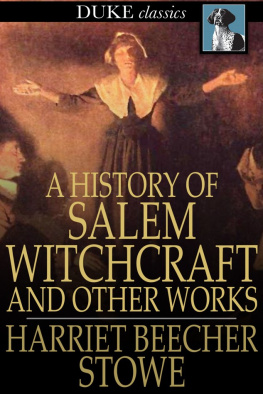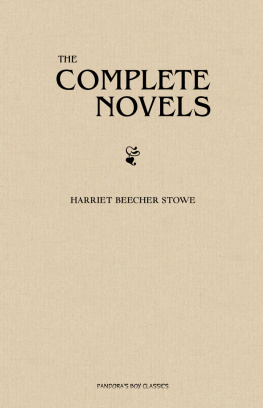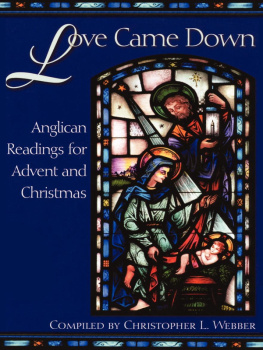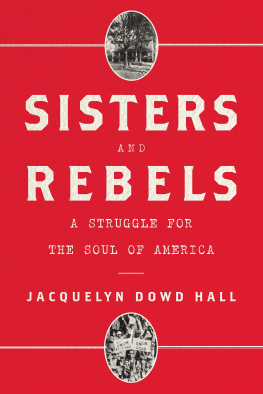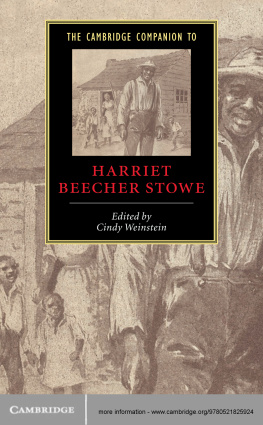Harriet Beecher Stowe - Footsteps of the Master
Here you can read online Harriet Beecher Stowe - Footsteps of the Master full text of the book (entire story) in english for free. Download pdf and epub, get meaning, cover and reviews about this ebook. year: 2011, publisher: Barnes & Noble, genre: Science. Description of the work, (preface) as well as reviews are available. Best literature library LitArk.com created for fans of good reading and offers a wide selection of genres:
Romance novel
Science fiction
Adventure
Detective
Science
History
Home and family
Prose
Art
Politics
Computer
Non-fiction
Religion
Business
Children
Humor
Choose a favorite category and find really read worthwhile books. Enjoy immersion in the world of imagination, feel the emotions of the characters or learn something new for yourself, make an fascinating discovery.
- Book:Footsteps of the Master
- Author:
- Publisher:Barnes & Noble
- Genre:
- Year:2011
- Rating:5 / 5
- Favourites:Add to favourites
- Your mark:
- 100
- 1
- 2
- 3
- 4
- 5
Footsteps of the Master: summary, description and annotation
We offer to read an annotation, description, summary or preface (depends on what the author of the book "Footsteps of the Master" wrote himself). If you haven't found the necessary information about the book — write in the comments, we will try to find it.
Stowe was the daughter of a prominent preacher, and the sister of the famous minister Henry Ward Beecher. This 1877 anthology of original and classic Christian hymns, essays, and homilies is organized by holiday, presenting thoughts for Advent, Christmas, the Epiphany, Lent, Passion Week, Easter, and the Ascension.
Footsteps of the Master — read online for free the complete book (whole text) full work
Below is the text of the book, divided by pages. System saving the place of the last page read, allows you to conveniently read the book "Footsteps of the Master" online for free, without having to search again every time where you left off. Put a bookmark, and you can go to the page where you finished reading at any time.
Font size:
Interval:
Bookmark:
HARRIET BEECHER STOWE

This 2011 edition published by Barnes & Noble, Inc.
All rights reserved. No part of this publication may be reproduced, stored in a retrieval system, or transmitted, in any form or by any means, electronic, mechanical, photocopying, recording, or otherwise, without prior written permission from the publisher.
Barnes & Noble, Inc.
122 Fifth Avenue
New York, NY 10011
ISBN: 978-1-4114-6457-5

T O THE R EADER
WHEN a city is closely besieged and many of its outworks destroyed, the defenders retreat to the citadel. In our day there is warm fighting about the outworks of Christianity. Many things are battered down that used to be thought indispensable to its defence. It is time to retreat to the citadel; and that citadel is C HRIST .
The old medival symbol shown above is still more than ever good for our day. Jesus Christ of Nazareth is still our King, our Light, our Law, our Leader. These names comprise all that a human being needs in this transitory, perplexing, and dangerous pilgrimage of life.
We are born to suffer. The very conditions of our mortal existence here imply suffering of the most terrible kind as a possibility, a probability, or a certainty. We have affections absorbing our whole being which are hourly menaced by danger and by deathat any moment our sweetest joys may become sources only of bitterest remembrance.
We are born to perplexity. We stand amid the jar and conflict of a thousand natural laws, to us inexplicable, and which every hour threaten us in ourselves, or those dearer than ourselves. We stand often in no less perplexity of moral law in ways where the path of duty and right is darkened and beset.
We are born to die. At the end of every possible road of life lies the dark Riverthe unknown future. If we cling to life, it is only to see it wither gradually in our hands, to see friends dropping from our side, places vacant at our fireside, infirmities and pains gathering about us, and a new generation with their impetuous energies rising around us to say, Why do you wait here? Why are you not gone?
And the Hereafter? What is it? Who will go with us into that future where no friend, however dear, can accompany the soul? What hand of power and love will take ours in the last darkness, when we have let go all others?
The dear old book which we call the Bible gives our answer to all this. It tells us of a Being so one with the great Author of nature and Source of all power that whoso hath seen Him hath seen the Creator. It tells us that all things that we behold in our material world were made by Him and for Him: that it pleased the Father that in Him should all fulness dwell, and that to Him all things in heaven and on earth are made subject. It shows Him to us from the beginning of time as constantly absorbed in the care and education of this world of ours. He has been the Desire of all nationspredicted, waited for, come at last!
And when He came and lived a mortal life, what did He show the divine nature to be? It may all be told in one word:
Love.
Love, unconquered, unconquerable by human sin and waywardness. Love, sympathetic with the inevitable sorrows of human existence. Love, expressed in every form by which a God could express love. His touch was healing; the very hem of His garment had restoring virtue. He lived and loved as we live and love, only on a higher idealHe gave to every human affection a more complete interpretation, a more perfect fulness. And finally, as the highest revelation of Love, He died for us, and in anguish and blood and dying pains still loved, still prayed for us, the ungrateful race of man. He passed through the night of death that we might learn not to fear it, and came forth radiant and immortal to tell us that we shall never die.
By a refinement of infinite mercy, the law of our lives is written not in hard statutes, but in the life of this tender and sympathetic friend. Christ is our law. We learn courage, patience, fortitude, forgiving love from him. The lesson impossible in statute is made easy by sympathy. But lest the very brightness of the ideal fill us with despair, we have His promise, "Lo I am with you alway, to the end of the world! I will not leave you comfortless. I will come to you." Jesus, as an inseparable soul-frienda consoler, a teacher, an enlightenerdwells on earth now in a higher sense than when He walked the hills of Palestine.
"Forever more beside us on our way,
The unseen Christ doth move,
That we may lean upon His arm and say,
'Dost Thou, dear Lord, approve?'"
To that great multitude whom no man can number, who are living the hidden life of faith, these studies into the life of our Master are dedicated. They have been arranged in the order of the seasons of the Christian year, with the hope of aiding the efforts of those who wish at these sacred seasons to bring our Lord more clearly to mind.
We hear much of modern scepticism. There is, perhaps, no more in the world now than there has always been, only its forms are changed. Its answer lies not in argument, but in the lives of Christ's followers. It was Christians who lived like Christ that won the first battle for Christianity, and it must be Christians who live like Christ that shall win the last. The life of faith in the Son of God, when fully lived out, always has been and always will be a victorious argument.
But to live this our faith must be firm. We cannot meet a sceptical world with weak faith. If we would draw our friend out of a swift-rushing current, our own feet must not stand on slippery places. We must seek faith in looking to Him who has the giving of it. We must keep Him before our minds, and come so near Him in daily prayer that we can say, "That which we have seen with our eyes, which we have looked upon and our hands have handled, of the Word of Life, declare we unto you."
And even to those who have no conscious belief in Christ, His name can never be a matter of indifference. Whether they believe it or not, Christ stands to them in a peculiar relation that no other being holds. He is their best Friend, the Shepherd that is seeking them, the generous Saviour and Giver that is longing to save them from all that they fear, and to give exceeding abundantly beyond all they can ask or think.
Hymn
WORLD Redeemer! Lord of Glory!
As of old to zealous Paul,
Thou didst come in sudden splendour
And from out the clouds didst call;
As to Mary in the garden
Did Thy risen form appear
Come, array'd in heavenly beauty,
Come and speak, and I will hear.
"Hast thou not," the Master answer'd,
"Hast thou not My written word?
Hast thou not, to go before thee,
The example of thy Lord?"
Blessed One! Thy word of wisdom
Is too high for me to know;
And my feet are all too feeble
For the path where Thou didst go.
Doubts torment me while I study;
All my reading and my thinking
Lead away from firm conviction,
And in mire my feet are sinking.
Then I turn to works of duty:
Here Thy law is very plain,
But I look at Thy example,
Strive to follow, strive in vain.
Let me gaze then at Thy glory;
Change to flesh this heart of stone!
Let that light illume my darkness
That around the apostle shone.
Cold belief is not conviction;
Rules are impotent to move:
Let me see Thy heavenly beauty;
Let me learn to trust and love.
In my heart the voice made answer:
Font size:
Interval:
Bookmark:
Similar books «Footsteps of the Master»
Look at similar books to Footsteps of the Master. We have selected literature similar in name and meaning in the hope of providing readers with more options to find new, interesting, not yet read works.
Discussion, reviews of the book Footsteps of the Master and just readers' own opinions. Leave your comments, write what you think about the work, its meaning or the main characters. Specify what exactly you liked and what you didn't like, and why you think so.


